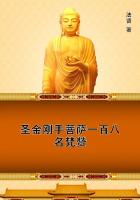'Are you playing with me,' I asked,' weaving arguments as a labyrinth out of which I shall find no way? You may enter a labyrinth by the way by which you may come forth: come now forth by the way you have gone in: or are you folding your reason in some wondrous circle of divine simplicity? A little while ago you started from happiness, and said that happiness was the highest good; and you shewed how that rested in the highest Deity.And you reasoned that God too was the highest good, and the fullest happiness; and you allowed, as though granting a slight gift, that none could be happy except such as were similarly divine.Again, you said that the essence of God and of happiness was identical with the very form of good; and that that alone was good which was sought by all nature.And you argued, too, that God guided this universe by the helm of Page 99goodness; and that all creatures with free will obeyed this guidance, and that there was no such thing as natural evil; and all these things you developed by no help from without, but by homely and internal proofs, each gaining its credence from that which went before it.'
Then she answered,' I was not mocking you.We have worked out the greatest of all matters by the grace of God, to whom we prayed.
For the form of the divine essence is such that it is not diffused without, nor receives aught into itself from without.But as Parmenides says of it, " It is a mass well rounded upon all sides." 1 But if you examine it with reasoning, sought for not externally but by lying within the sphere of the very thing we are handling, you will not wonder at what you have learnt on Plato's authority, 2 that our language must be akin to the subjects of which we speak.
'Happy the man who could reach the crystal fount of good:
happy he who could shake off 99:1 -- This is a verse from the poems in which Parmenides embodied his philosophy: this was the doctrine of the unity which must have been in Boethius's mind above.Parmenides, the founder of the Eleatic school (495 B.C.) was perhaps, considering his early date, the greatest and most original of Greek philosophers.Boethius probably did not make a clear distinction between the philosopher's own poems and the views expressed in Plato's Parmenides.
99:2 -- Plato in the Timoeus says,' The language must also be akin to the subjects of which its words are the interpreters'
-- -(29 B.).Page 100
the chains of matter and of earth.The singer of Thrace in olden time lamented his dead wife: by his tearful strains he made the trees to follow him, and bound the flowing streams to stay: for him the hind would fearlessly go side by side with fiercest lions, and the hare would look upon the hound, nor be afraid, for he was gentle under the song's sway.But when the hotter flame burnt up his inmost soul, even the strains, which had subdued all other things, could not soothe their own lord's mind.Complaining of the hard hearts of the gods above, he dared approach the realms below.There he tuned his songs to soothing tones, and sang the lays he had drawn from his mother's 1 fount of excellence.His unrestrained grief did give him power, his love redoubled his grief's power: his mourning moved the depths of hell.With gentlest prayers he prayed to the lords of the shades for grace.The three-headed porter 2 was taken captive with amazement at his fresh songs.The avenging goddesses, 3 who haunt with fear the guilty, poured out sad tears.Ixion's4 wheel no longer swiftly turned.Tantalus, 5 so long abandoned unto thirst, could 100:1 -- Orpheus's mother was the Muse Calliope, mistress of the Castalian fount.
100:2 -- The dog Cerberus.
100:3 -- The Furies.
100:4 -- Ixion for his crimes was bound upon a rolling wheel 100:5 -- Tantalus for his crimes was condemned to perpetual hunger and thirst though surrounded by fruits and water which ever eluded his grasp.Page 101then despise the flowing stream.The vulture, satisfied by his strains, tore not awhile at Tityos's 1 heart.At last the lord of the shades 2 in pity cried: "We are conquered; take your bride with you, bought by your song; but one condition binds our gift: till she has left these dark abodes, turn not your eyes upon her." Who shall set a law to lovers? Love is a greater law unto itself.Alack! at the very bounds of darkness Orpheus looked upon his Eurydice; looked, and lost her, and was lost himself.
'To you too this tale refers; you, who seek to lead your thoughts to the light above.For whosoever is overcome of desire, and turns his gaze upon the darkness 'neath the earth, he, while he looks on hell, loses the prize he carried off.'
101:1 -- Tityos for his crimes was for ever fastened to the ground while a vulture devoured his entrails.
101:2 -- Pluto.














